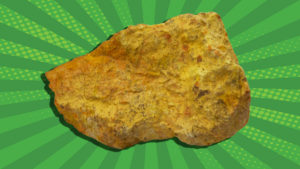Iron ore aspirant Juno times its ASX run to perfection

Juno is striding towards an ASX listing as iron ore sits above US$200 a tonne. Picture: Getty Images
Aspiring iron ore producer Juno Minerals will be hoping to bask in the reflective glow of a plus-US$200 price for the steelmaking commodity when it lists on the ASX today.
Juno begins trading under the ticker code JNO at 12pm AEST after raising $3.9 million through an initial public offering to go with $5 million in seed capital provided by parent Jupiter Mines.
Jupiter, whose primary concern is the Tshipi manganese operation in South Africa, set up Juno last year as the vehicle through which it would spin out the Mount Mason DSO hematite project and Mount Ida magnetite projects in Western Australia’s Central Yilgarn region.
It appointed as chief executive officer of the spin-out Greg Durack, an experienced mining industry professional who managed the original feasibility study on Mount Mason as chief executive of Jupiter in 2012.
Speaking to Stockhead in the lead-up to the listing of Juno, Durack described his return to Juno as “an opportunity to deal with unfinished business”.
“I am very pleased and humbled in getting the opportunity to develop these projects again,” he said.
“With the current high iron ore prices, now is the time to move into production as soon as possible.
“We are starting with a small, dedicated project team that is truly excited to progress Mount Mason in the short term and then set its sights on the larger opportunity at Mount Ida.”
With significant work completed on Mount Mason previously and a contracting strategy that will minimise capital requirements and compress the development timeline, Durack believes Mount Mason could be in production before the end of the year.
The official target that has been set is the first quarter of next year.
Mt Mason contains a measured and indicated Mineral Resource of 5.9 million tonnes at 60.1% iron and aside from native vegetation clearing permits and works approvals that have had to be resubmitted, has all the necessary approvals in place for mining to start.
The plan is for DSO fines to be transported by truck to an existing rail siding before being transported by train to the port of Esperance.
Mt Ida is a larger, longer-dated proposition, hosting a resource of 1.85 billion tonnes at 29.5% iron on a granted mining lease.
According to the company, it has the potential to be a tier one magnetite mine and will benefit from learnings drawn from other magnetite ventures currently being pursued in WA.
Although Jupiter shareholders including the likes of Korean steelmaker POSCO and natural resources investment group AMCI were gifted shares in Juno through an in-specie distribution, Jupiter has not retained a direct stake in the company.
Juno was initially scheduled to list in March, but was delayed when Jupiter shareholder Stichting Pensioenfunds ABP (ABP) opposed the spin-out.
The departure of ABP from the Jupiter register was viewed as positive for Juno and its IPO prospects as there was some expectation that if the pension fund received the in-specie distribution, it would be a seller of the shares from the outset.
This story was developed in collaboration with Juno Minerals, a Stockhead advertiser at the time of publishing.
This story does not constitute financial product advice. You should consider obtaining independent advice before making any financial decisions.
Related Topics
UNLOCK INSIGHTS
Discover the untold stories of emerging ASX stocks.
Daily news and expert analysis, it's free to subscribe.
By proceeding, you confirm you understand that we handle personal information in accordance with our Privacy Policy.








